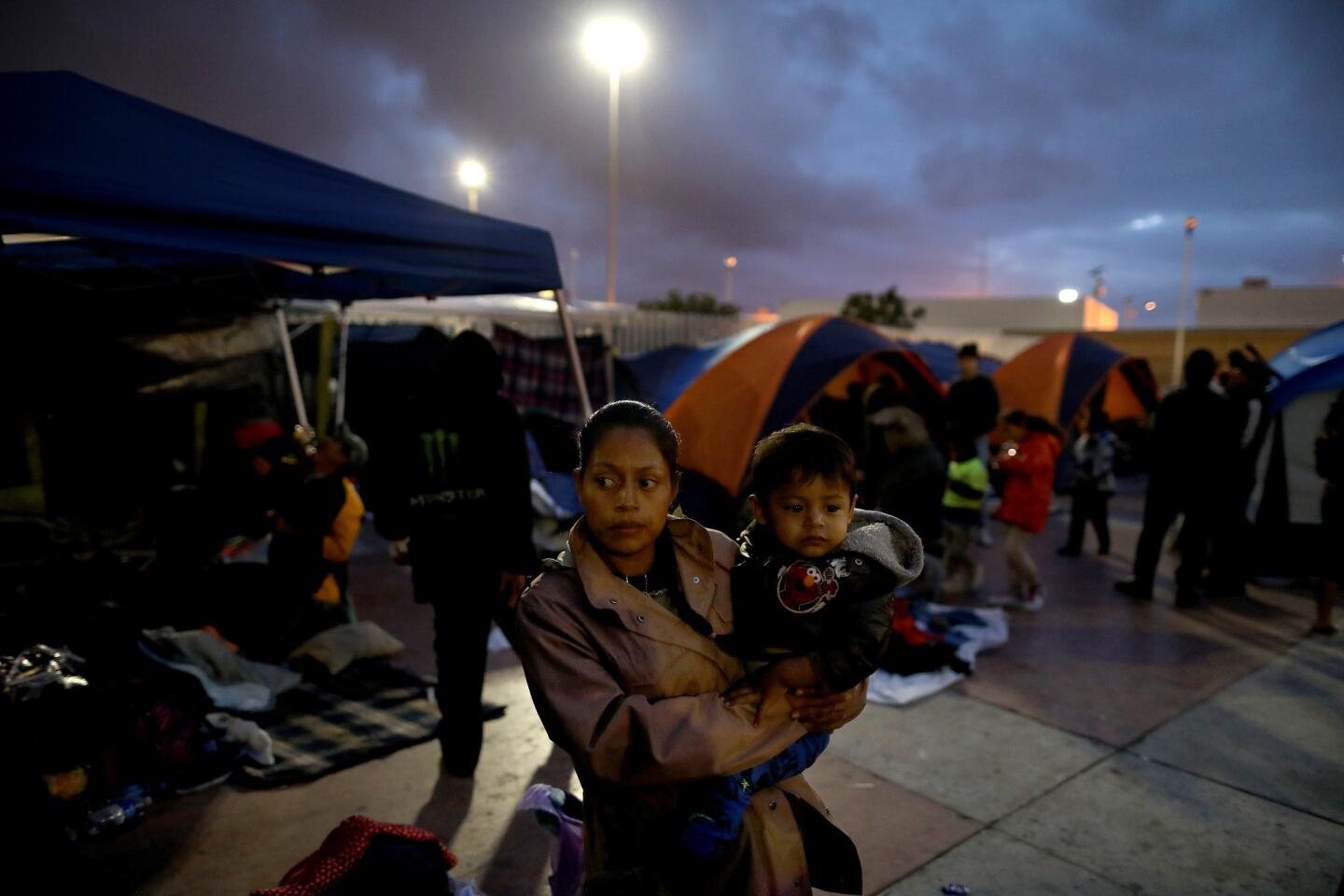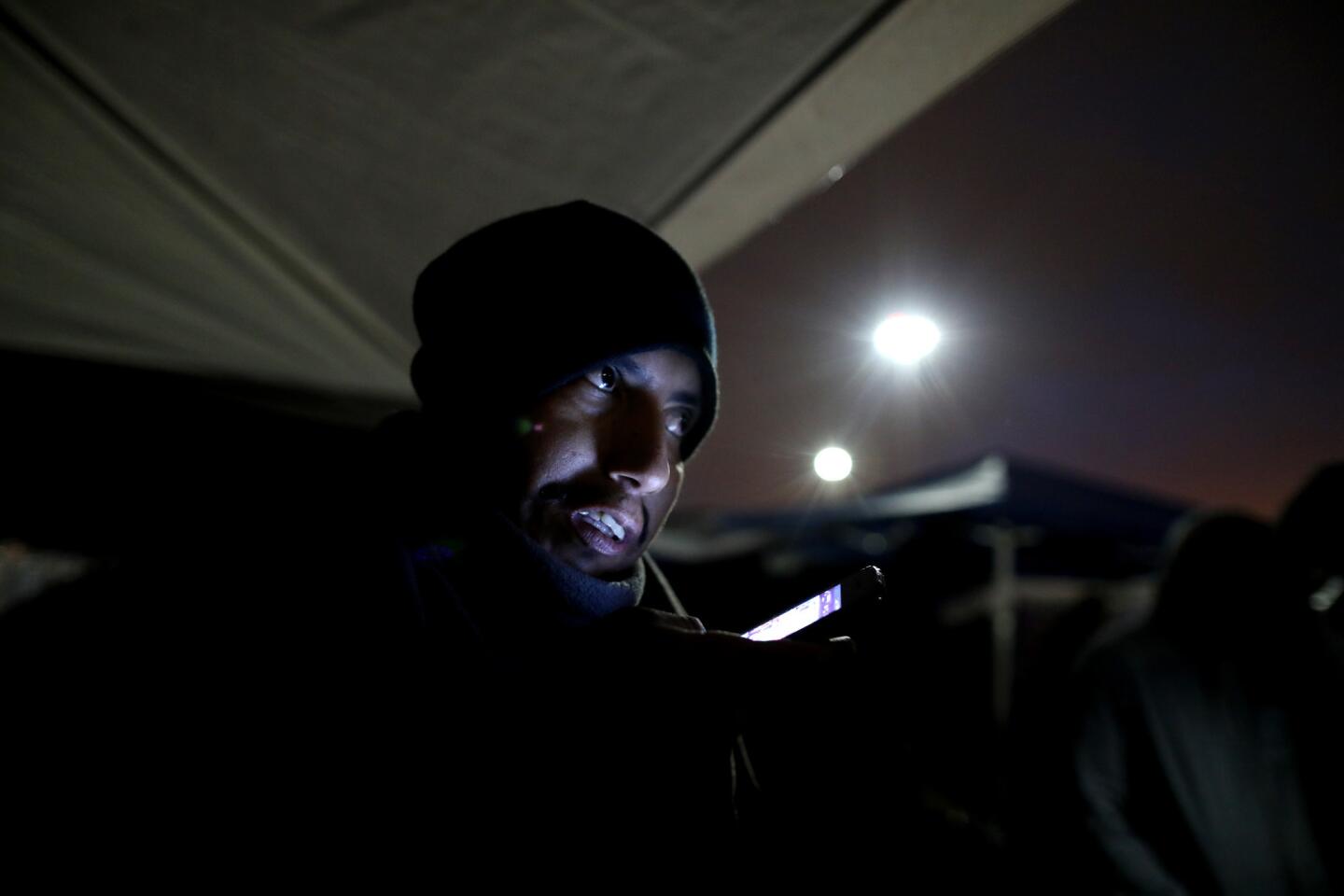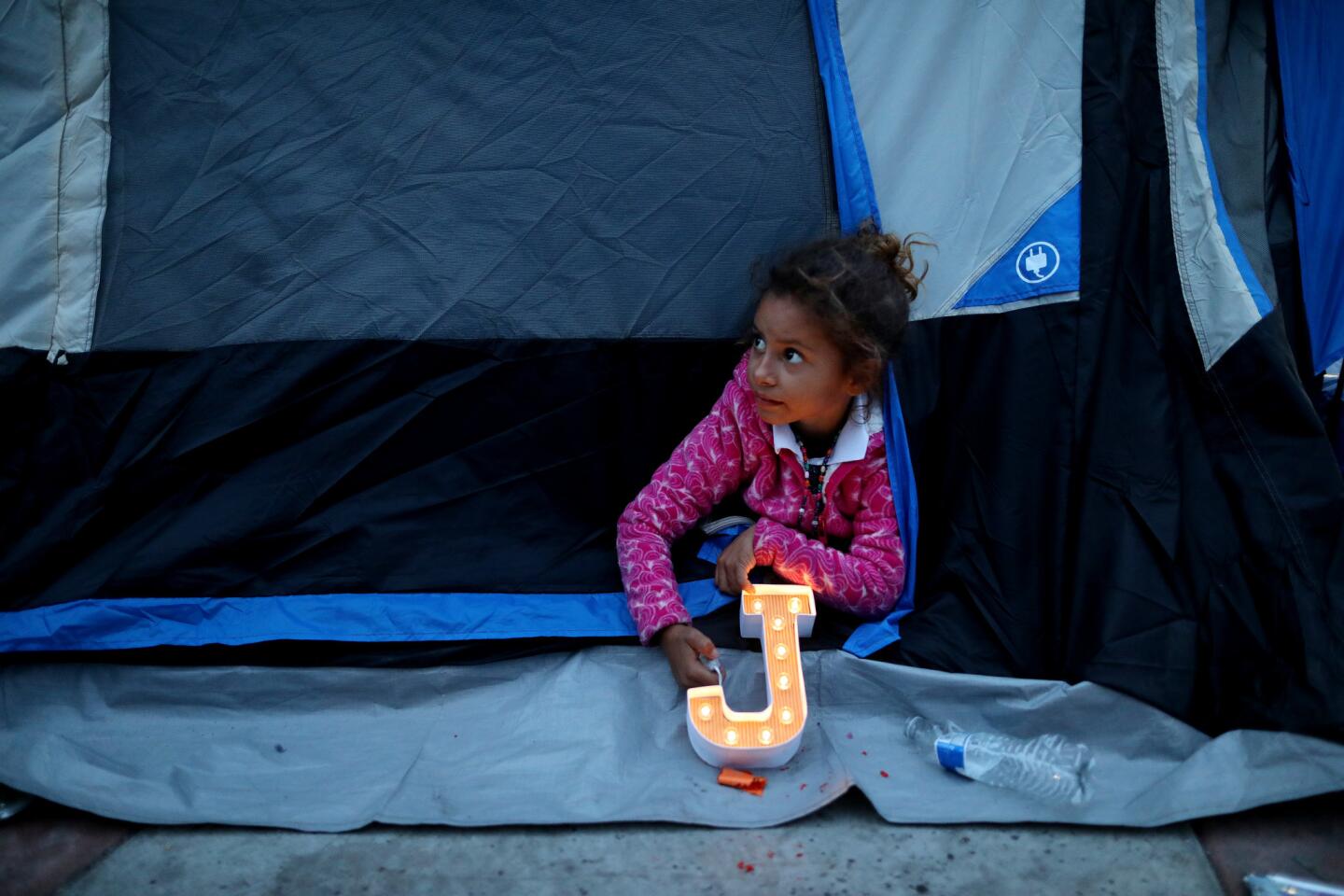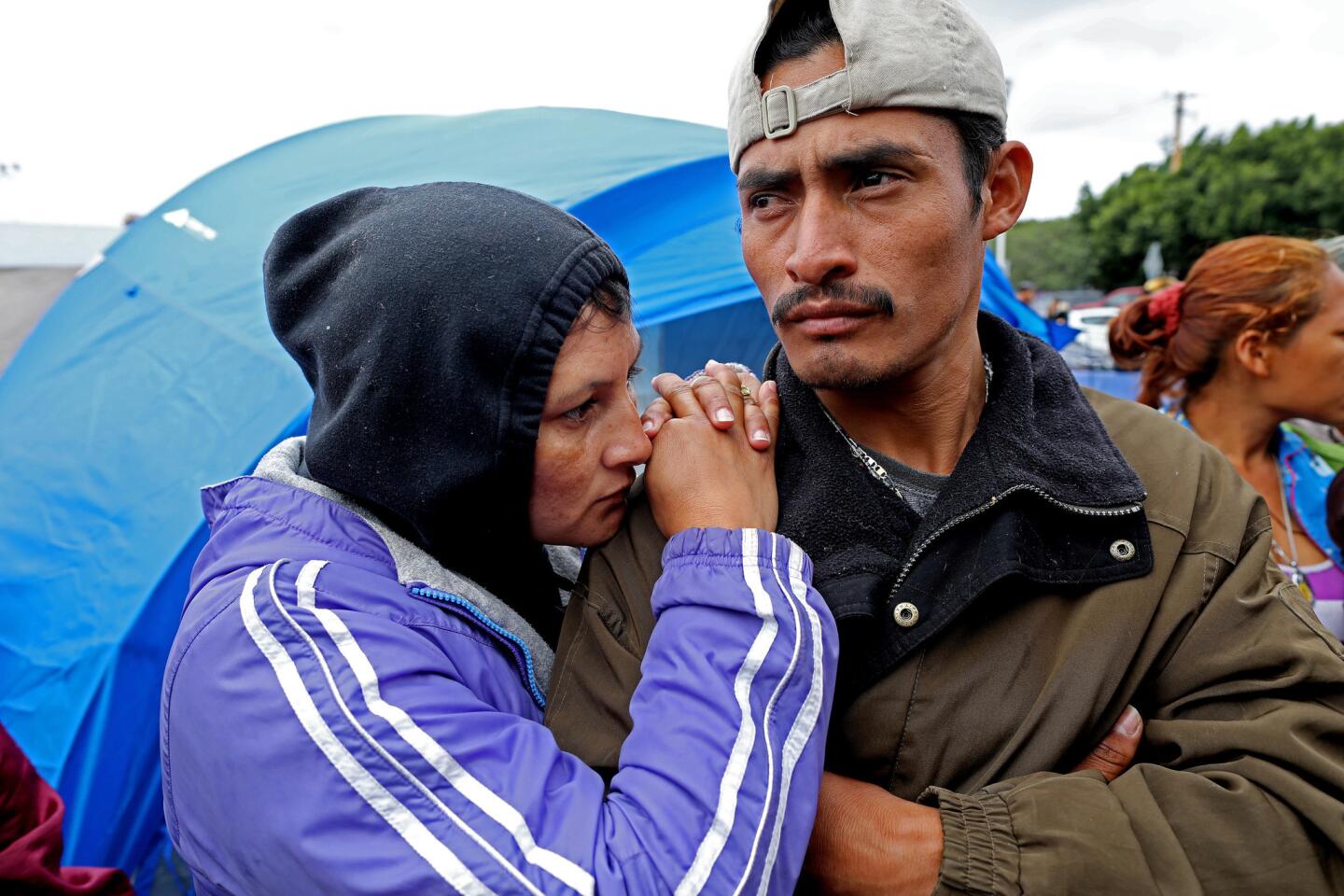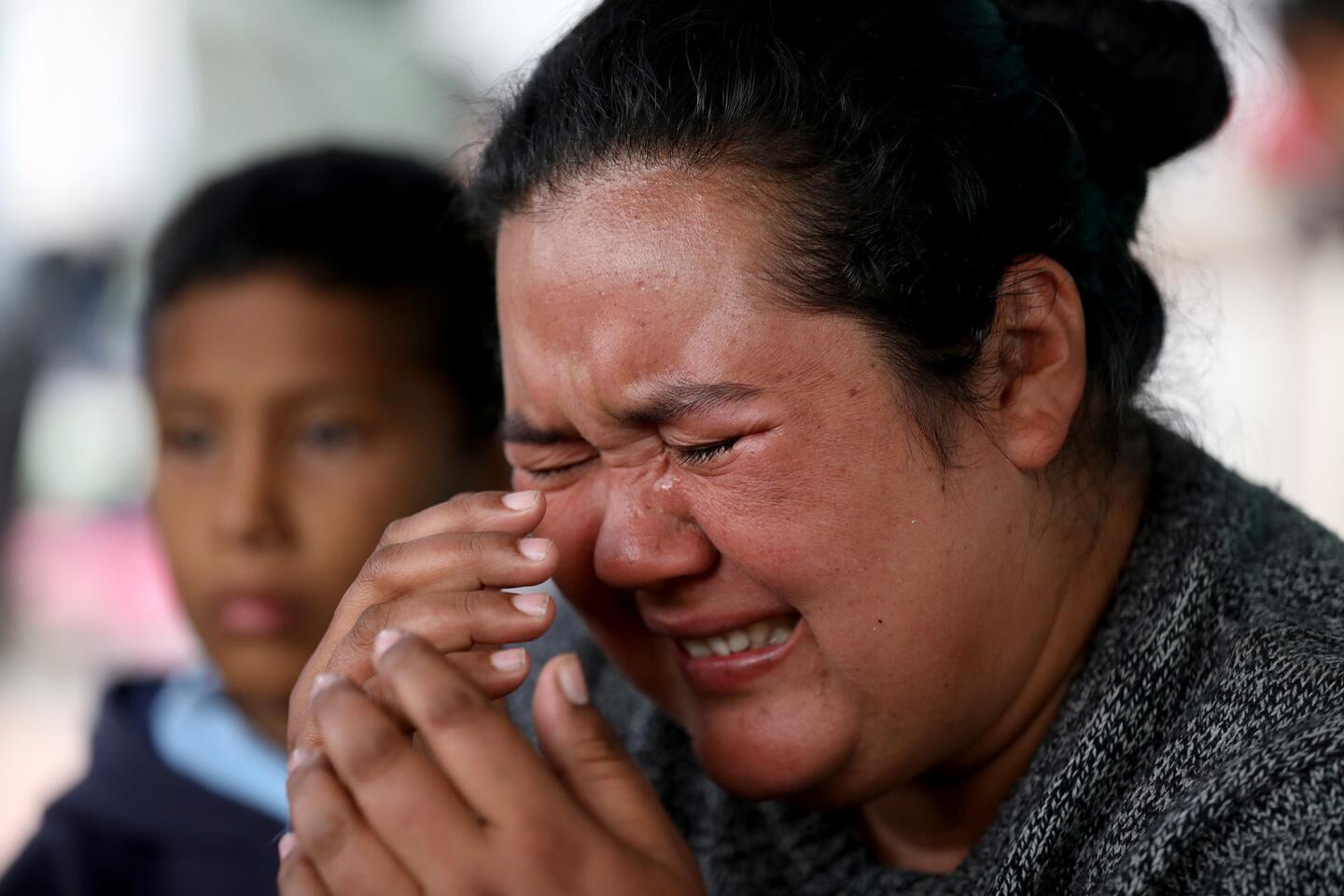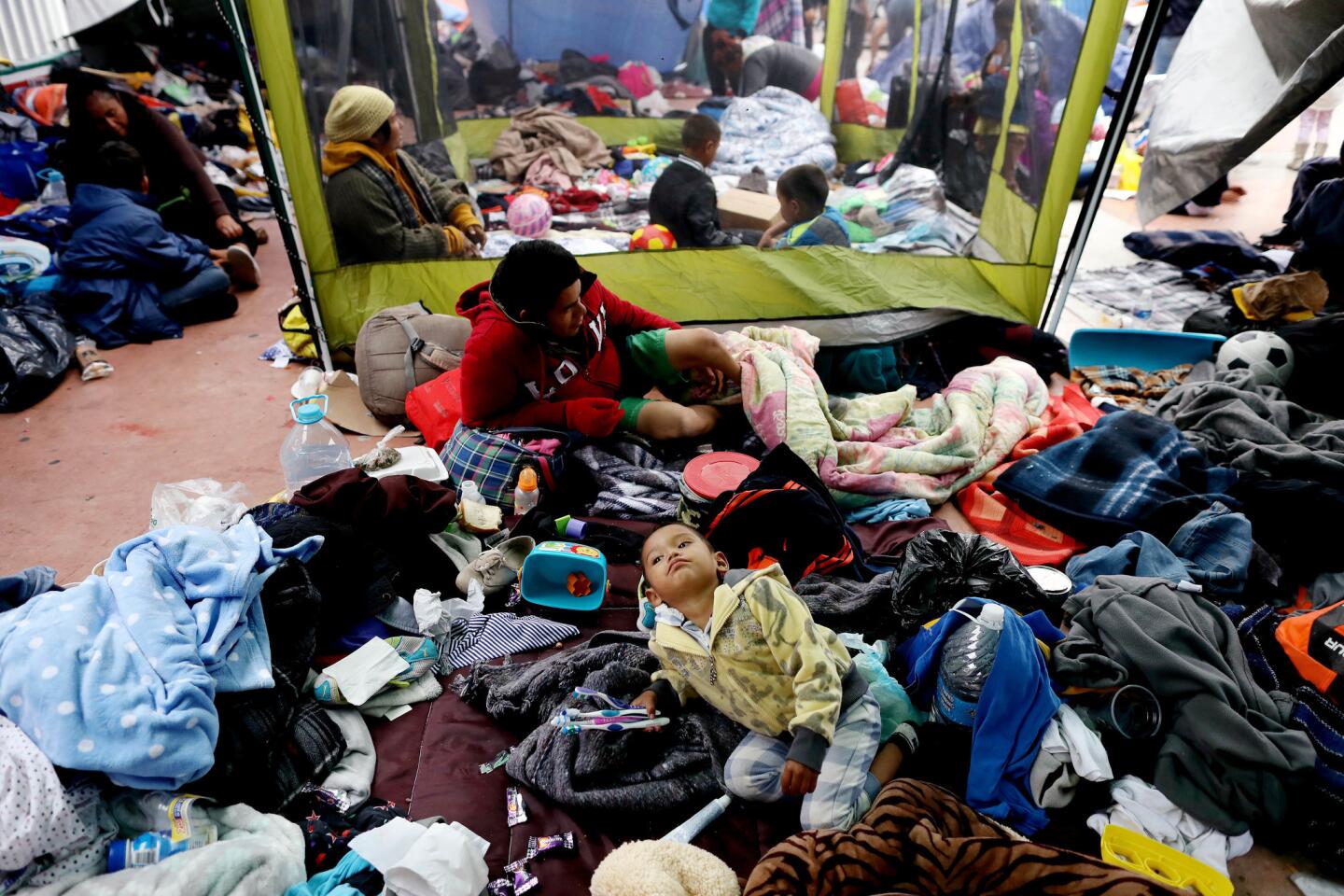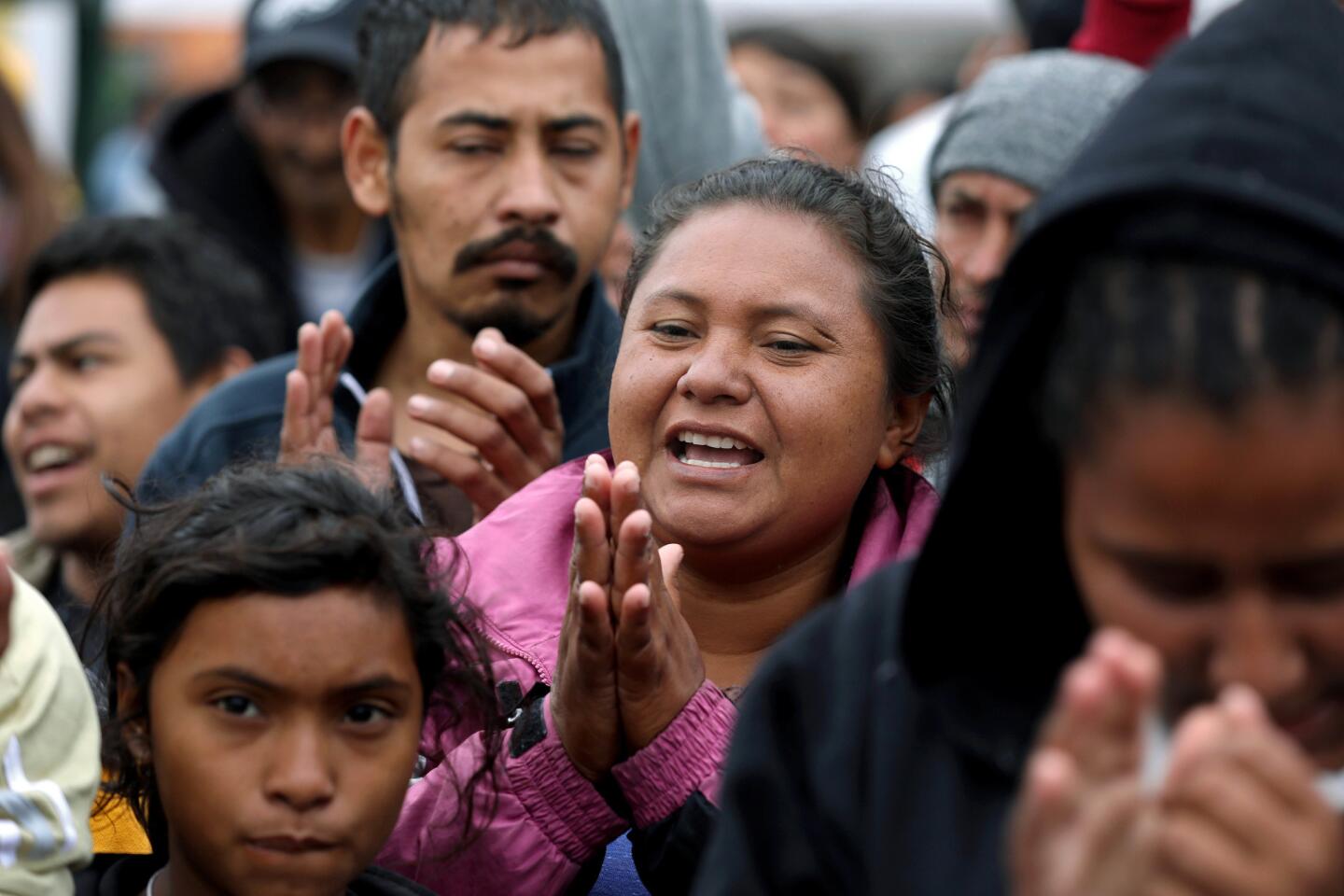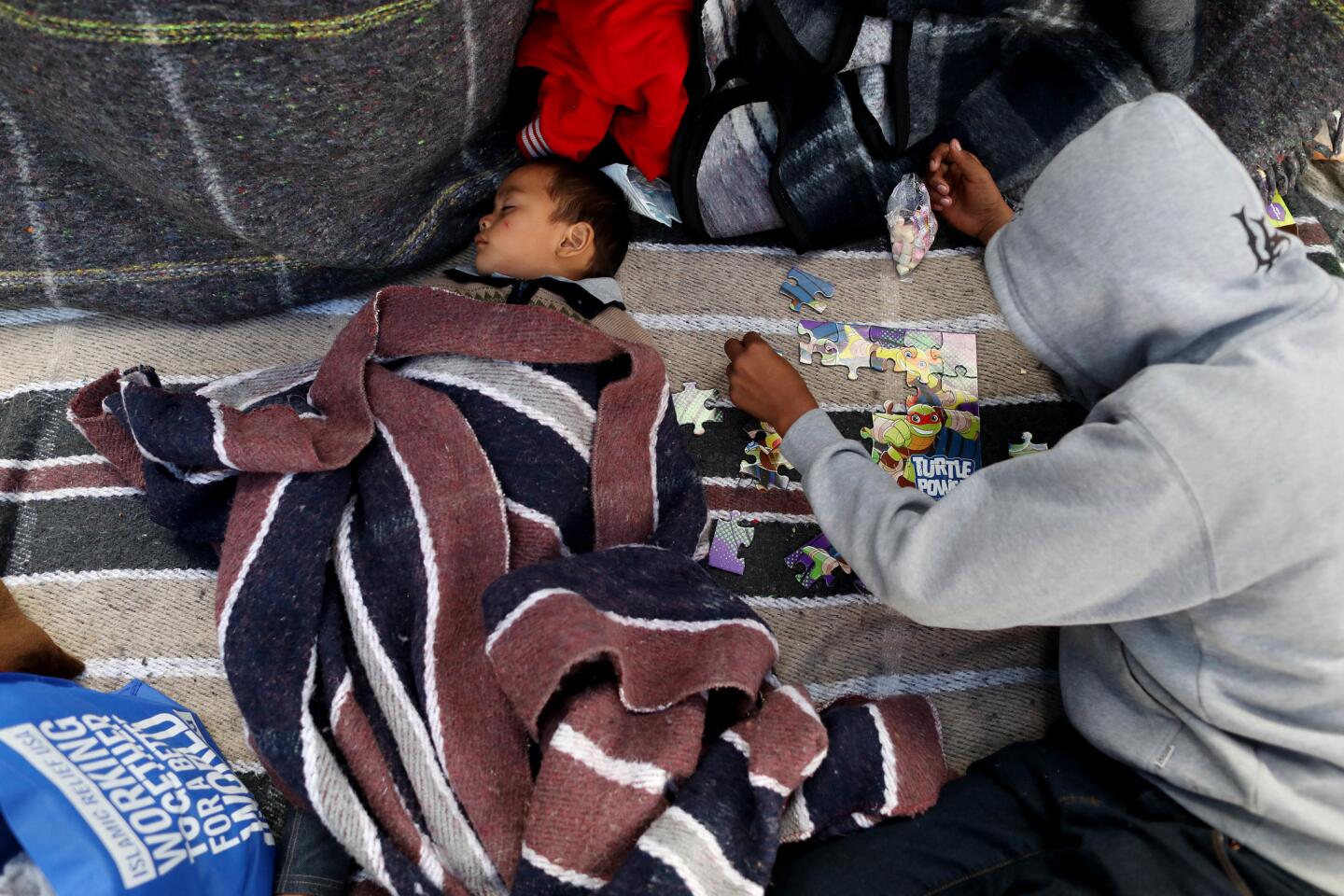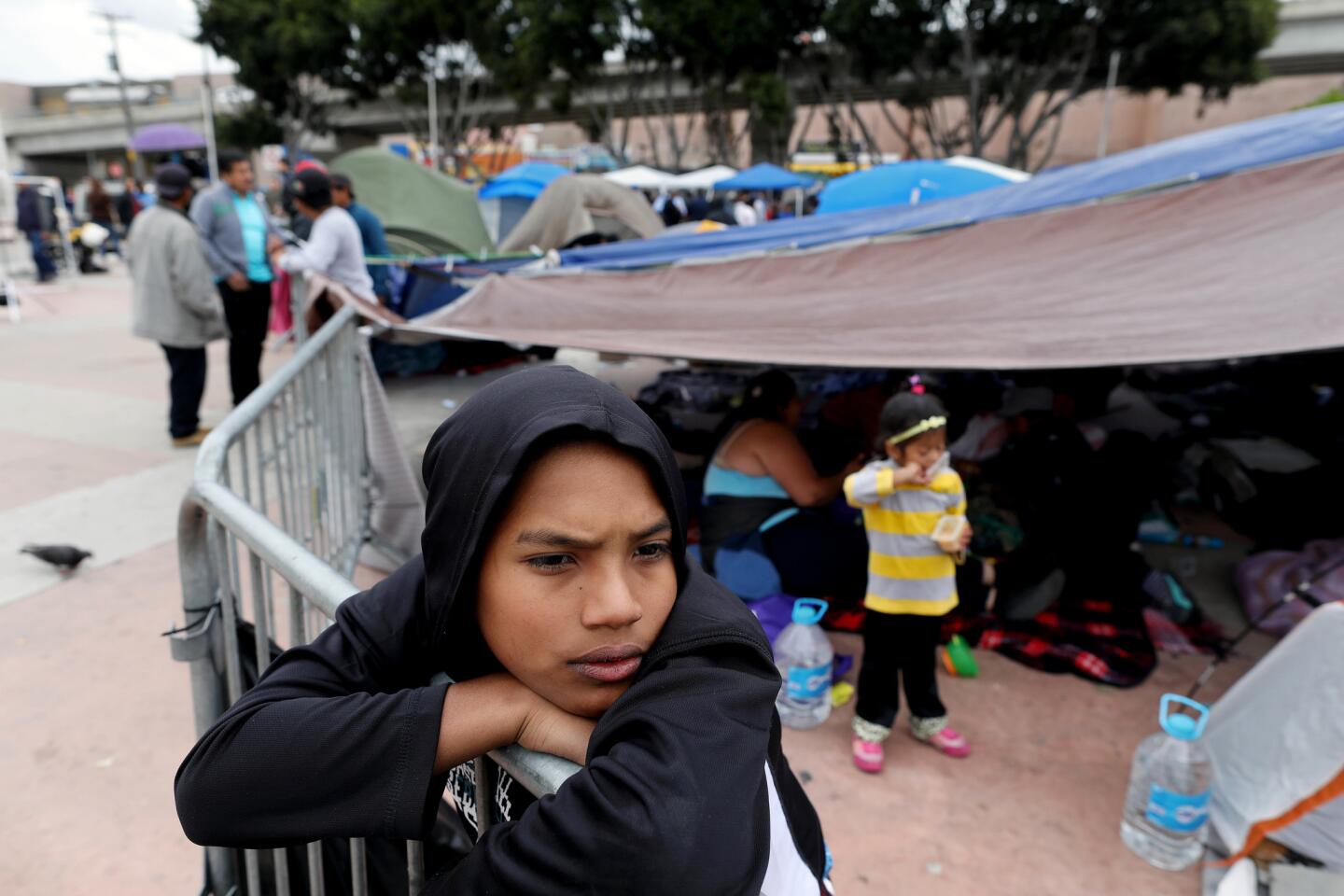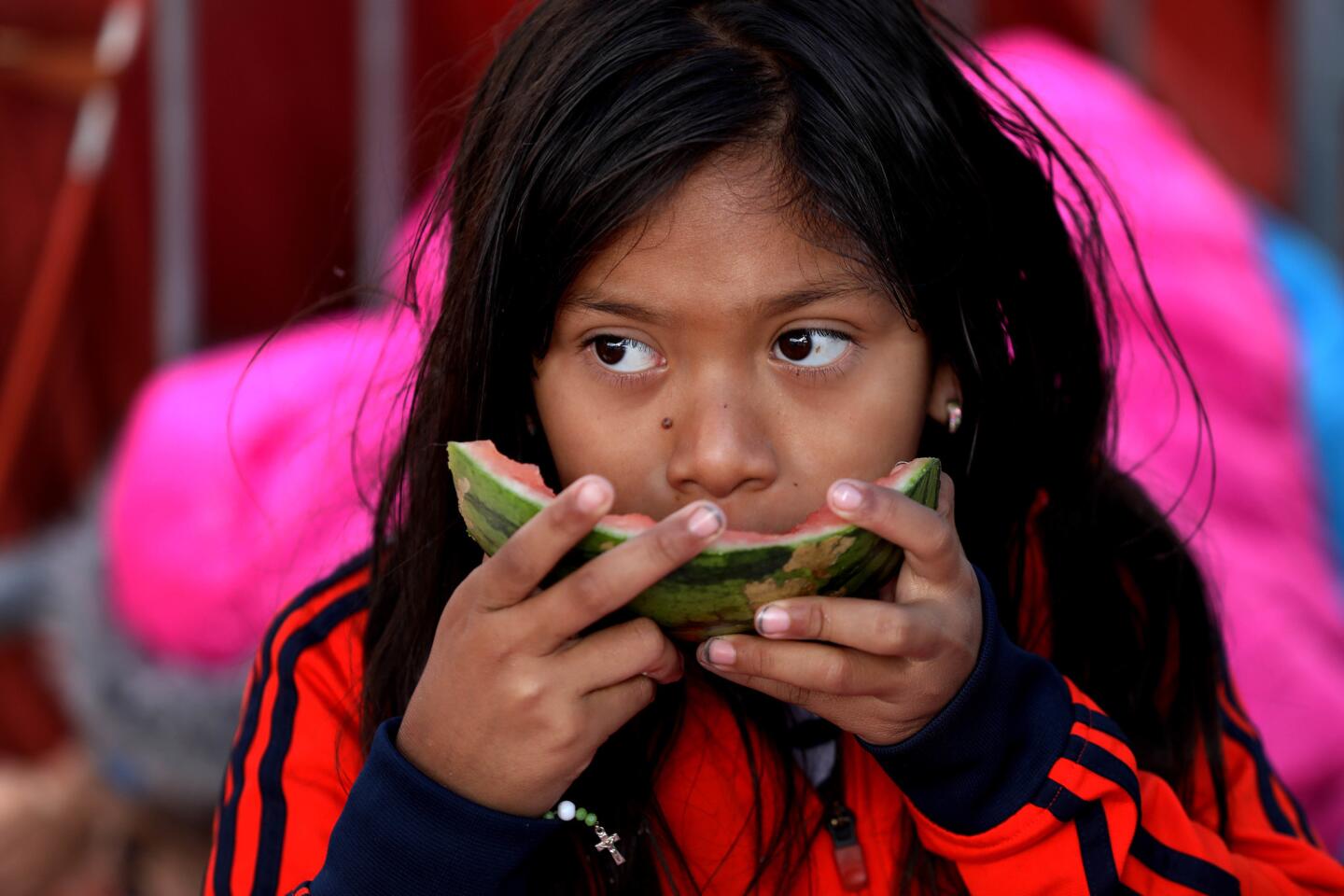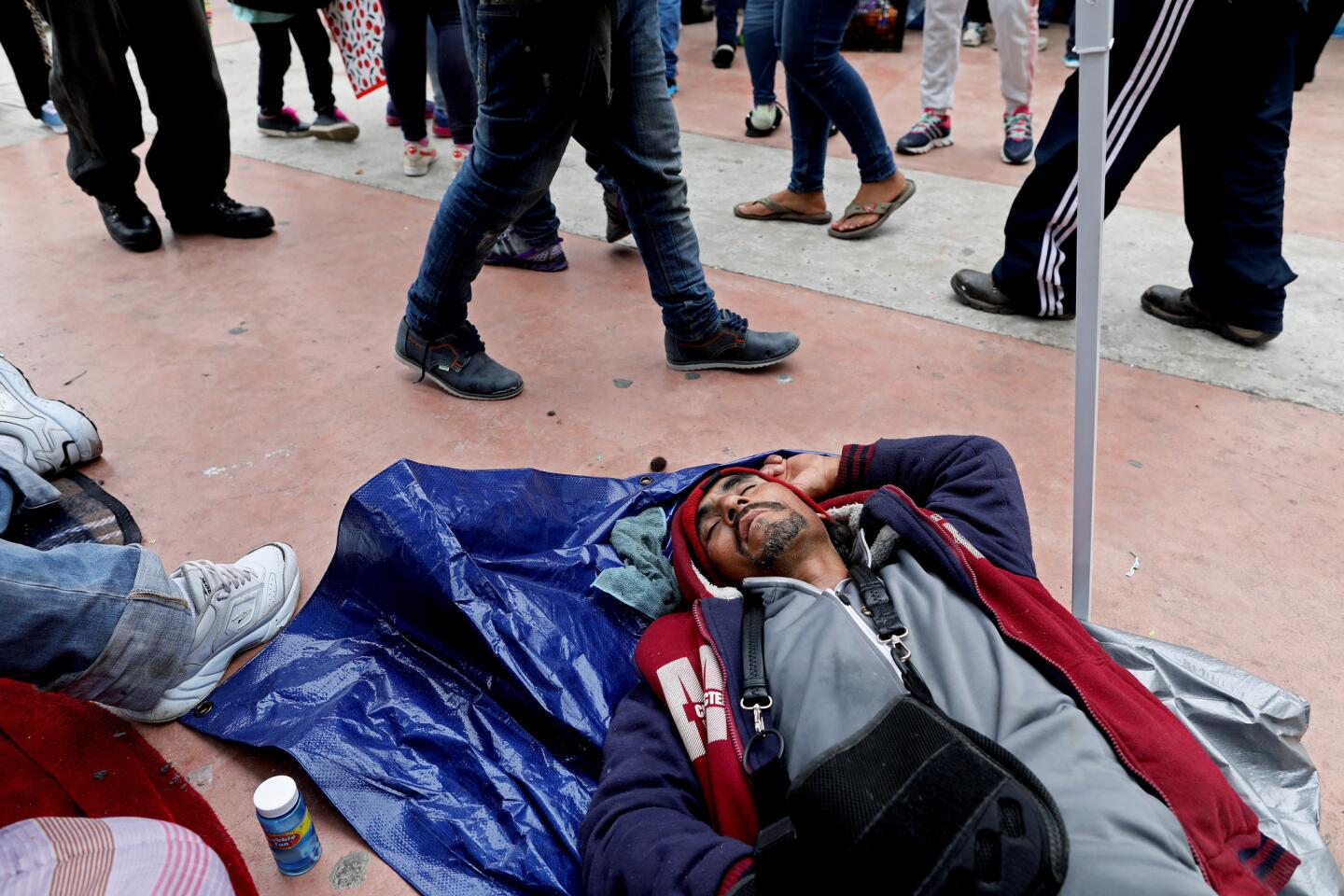A caravan of migrants waits at America’s doorstep in protest and solidarity
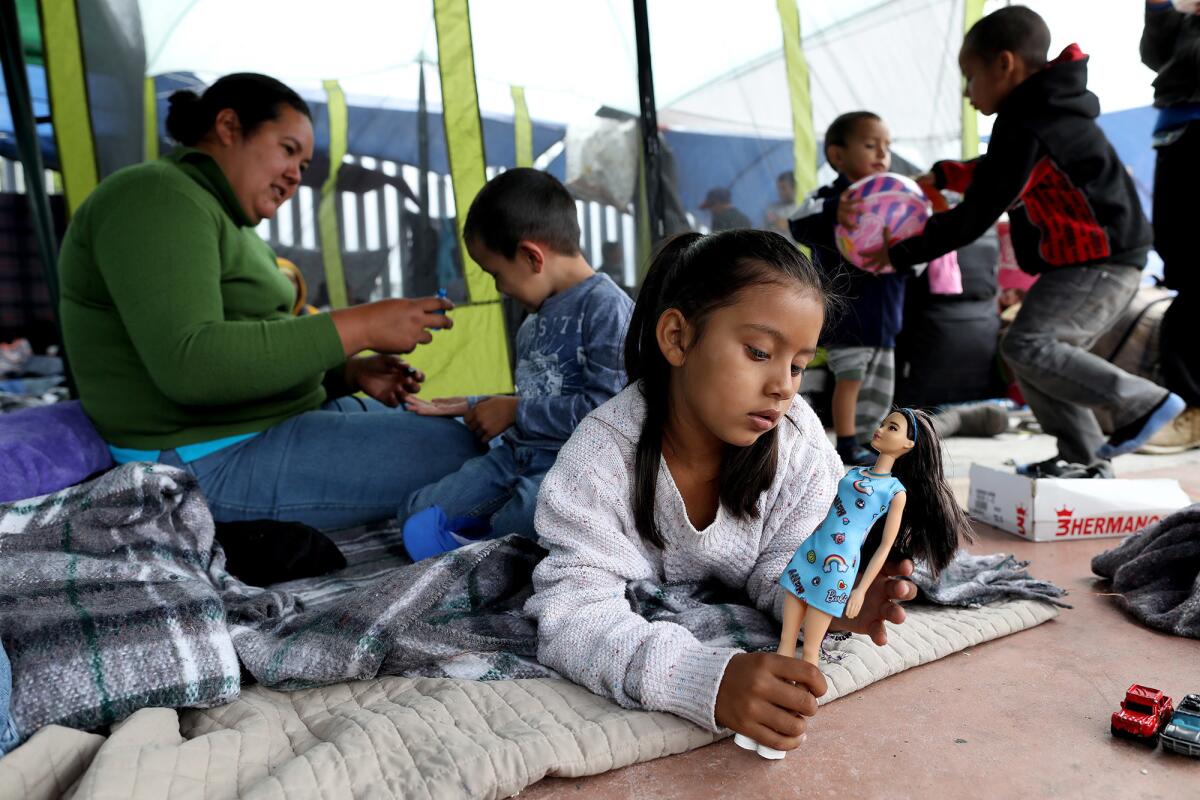
- Share via
Reporting from Tijuana — Irma Rivera heard about the caravan to the U.S. border when she reached Tapachula, a town on the southwest end of Mexico.
She and other immigrants staying in shelters saw fliers announcing the trip north.
By then, Rivera and her two children had been stranded for more than a month. The idea of joining a group for the 4,000-mile journey seemed a little less terrifying.
Back home in Honduras, nothing was left. Rivera’s village was locked in a bloody land battle. Her husband had been shot dead in the fields. Her children, 4 and 6, were afraid to live at home.
When someone called Rivera with a death threat, the seamstress fled. Her ultimate goal was to join her brother in Fort Worth, Texas.
She had her own reason to run. Hundreds of others in the caravan had theirs. They never thought their trip to the border would become a story of its own that would ricochet around the world. The group moved north on buses, trains and on foot with limited access to news. Many had only a vague sense that they had gotten caught in a political fight stirred up by President Trump’s tweets:
The big Caravan of People from Honduras, now coming across Mexico and heading to our “Weak Laws” Border, had better be stopped before it gets there.
Caravans are heading here. Must pass tough laws and build the WALL.
These big flows of people are all trying to take advantage of DACA. They want in on the act!
Rumors spread across the caravan on the road. Rivera heard Trump had called them all bandits. She heard he had dispatched tons of soldiers to the border who would be ready to shoot them on command.
“Like World War III,” Rivera, 31, said.
By the time the caravan finally reached Tijuana on Sunday, the group that had once numbered more than 1,500 had shrunk under 200.
Dozens of them — mostly women and children — lined up at the El Chaparral port of entry, ready to request asylum from U.S. immigration officials.
They were turned away. Officers said the facility was at capacity.
That cold night, the caravan’s protest began. Instead of going to shelters, the migrants set up tarps and slept on the pavement. Twenty people settled themselves right outside the building’s doors. The rest camped out on the ground near the staircase leading to the port of entry.
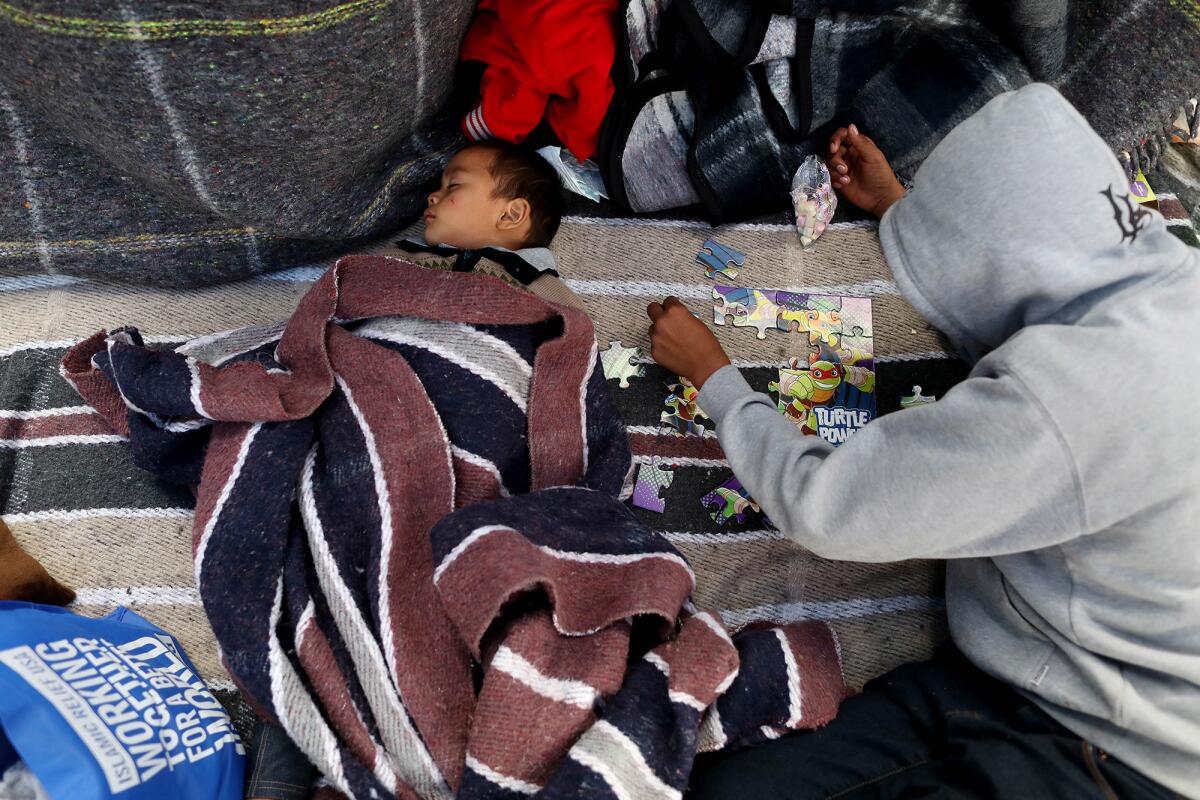
There, on America’s doorstep, their circumstances grew ever more surreal. Dozens of journalists from as far away as China descended on their humble camp. Mexican police built a perimeter. A drone buzzed overhead. Some of the immigrants worried it was sent by Trump to spy on them.
By the third day, a mini tent city had formed. Families, most of them led by single mothers, spread out a sea of blankets covered by tarps and tents. Kids ran around kicking balls and sucking on lollipops. Visitors arrived and donations piled up on a few tables near the entrance: canned beans, bags of bread, water, clothes, toilet paper.
The metal barricade set up by Mexican authorities corralled the camp. It also set it apart from a group of Mexican asylum seekers, who were camping a few feet away — some for weeks before the caravan’s arrival.
The fence made caravan member Kenia Avila feel safe. She and her three boys had left Honduras overnight after an armed gangster threatened her at her fish stand.
Avila said her husband had sent the man after she filed a domestic-violence complaint against him. In Tapachula, the gangster spooked her after he texted her the address of her shelter.
“If I want my children to have a mother, I have to keep going,” said Avila, 35, sitting inside a tent a few blocks from the border. “I will climb that wall if I have to. I have no choice.”
She and others in the caravan were relieved when Customs and Border Protection officers gradually began to let in immigrants.
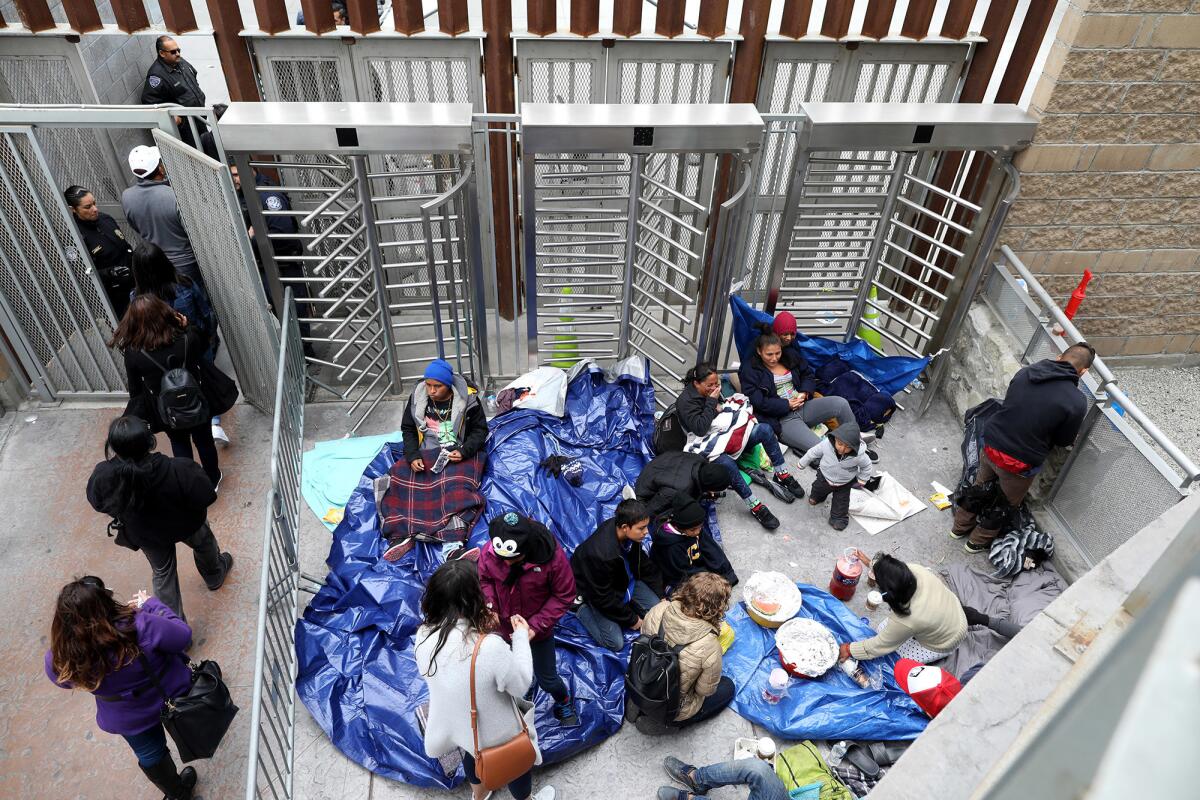
As of Wednesday afternoon, a total of 49 caravan migrants had been admitted to the port of entry.
Their fellow travelers cheered on every group, hopeful they would be next.
As it made its way north, the caravan had become a village in motion. Each adult played a role in the nearly two-month journey. Some cooked or swept or looked after the children. Others stood watch or scouted for bathrooms. When the group was low on money, each of them took turns begging.
In Tijuana, Josue Arevalo Alfar, a big guy from El Salvador wearing a beanie a few sizes too small, became the caravan’s announcer.
“Women!” he yelled from a small megaphone. “We found a place to shower. Put your name on the list now!”
The drama of the camp took the tiny Tijuana border district of Empleados Federales by surprise. At Liqui 2 Mini Market, sales were up. Immigrants flocked to the restroom, paying 10 pesos a use.
Outside, scores of Tijuanenses took in the scene as they came in and out of the port of entry.
Few would stop. Many still remember a few years back when tens of thousands of Haitans descended on their town to ask for asylum.
“Being a Latino, it hurts to see this,” said Eduardo Lozano, a lifelong resident of Tijuana who helps build battleships in San Diego. “But do you really think these people are going to be allowed to cross? They’re not. Many of them are going to stay here and become a burden.”
As he spoke, cars crammed with donations continued to pull up to the camp. They brought tents, toys and a few medical supplies.
This bounty at times created tension between the caravan and the nearby Mexican campers. But it also brought much-needed relief to both groups.
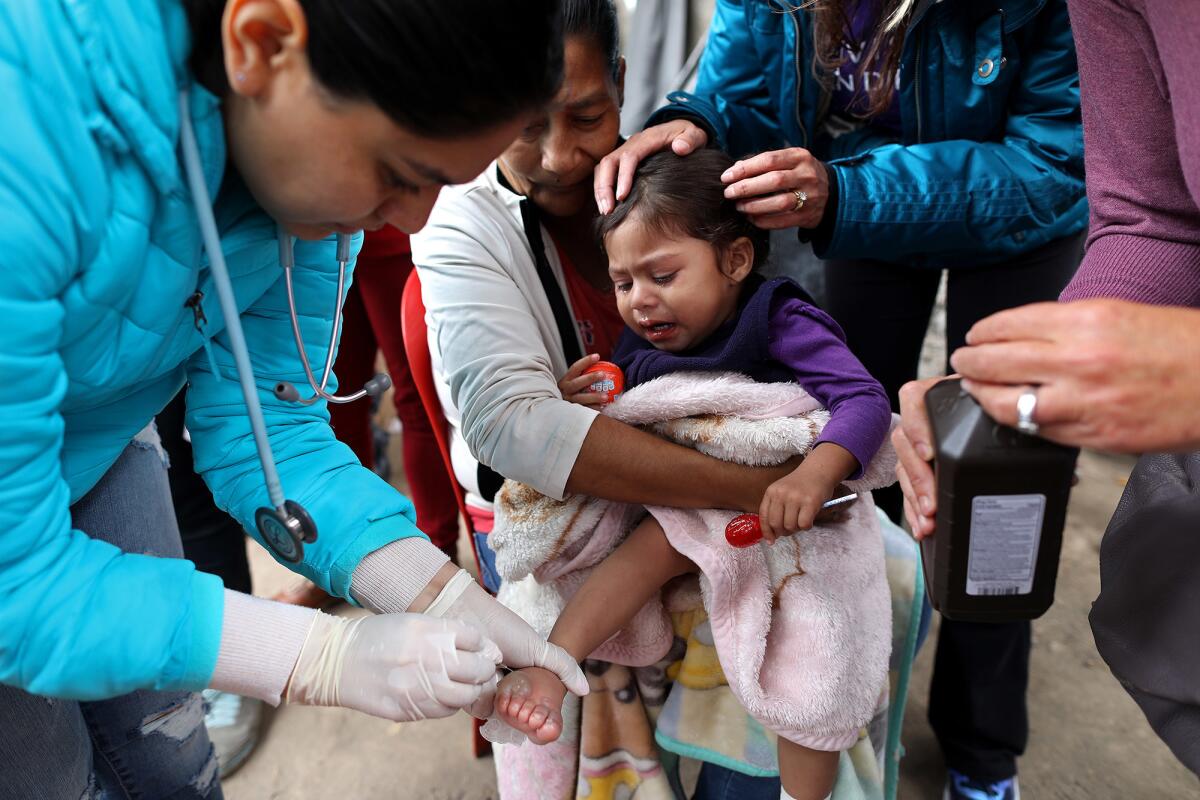
At some point, a crowd gathered around 1-year-old Renata Gonzalez Castillo, who had been brought to the camp from Michoacan, Mexico, where her father had been killed.
The girl sat screaming in her grandmother’s arms. A day before, her relatives said, boiling soup had spilled on her feet, leaving blisters the size of radishes. A few doctors came by and bandaged up her feet.
After traveling so far, few in the caravan had managed to hold on to the things they had carefully packed to take with them from home.
Rivera laughed as she thought of all the filthy clothes, blankets and shoes she and her kids shed along the way. The only thing she still carried was her husband’s death certificate.
Jose Rodriguez Gavez had been 38 when he died. He used to come home after working in fields of African palms with tiny lizards in his hands — gifts for his children, Jesus and Suany.
Several times along the journey, Jesus, 4, asked:
“Mama, are we going to the United States to find me a new dad?”
“No, my love,” Rivera would tell him as they traveled on.
“All we need,” she said, “is to find work and a safe place to sleep.”
More to Read
Sign up for Essential California
The most important California stories and recommendations in your inbox every morning.
You may occasionally receive promotional content from the Los Angeles Times.
